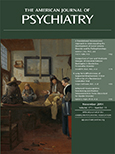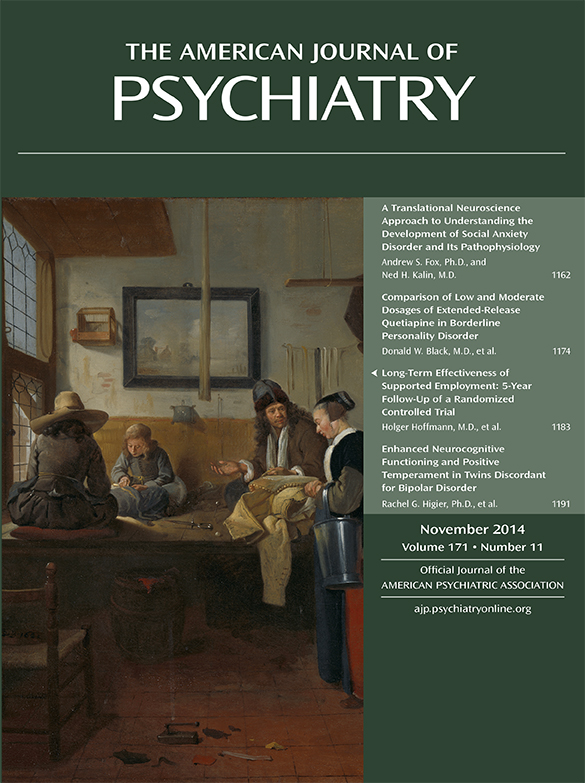T
o the E
ditor: I am writing to comment on the article by Rothbaum et al. (
1), “A Randomized, Double-Blind Evaluation of
d-Cycloserine or Alprazolam Combined With Virtual Reality Exposure Therapy for Posttraumatic Stress Disorder in Iraq and Afghanistan War Veterans,” in the June 2014 issue of the
Journal. This article reports findings from an important double-blind study of virtual reality exposure therapy augmented by
d-cycloserine (an N-methyl-d-aspartic acid receptor partial agonist/putative “extinction learning enhancer”), alprazolam, or placebo. However, I am worried that one important aspect of the findings may have been relatively overlooked. Uncommented upon, as far as I can tell in either the primary article or in the accompanying editorial by Dr. Neylan, is the fact that based on the 95% confidence interval,
d-cycloserine augmentation of virtual reality exposure therapy appeared to be associated with worse outcomes for the subset of patients experiencing little response or worsening of subjective distress during the treatment. Figure 1B of the article appears to suggest that if patients experienced approximately a ≤4-point mean improvement in their within-session subjective distress during the treatment,
d-cycloserine augmentation was reported as being associated with significantly
worse changes in the Clinician-Administered PTSD Scale scores compared with placebo. Unfortunately, at least one potentially plausible mechanism suggests itself, albeit speculative: perhaps patients who, for whatever reason, experience their posttraumatic stress disorder (PTSD) symptoms as worsening, rather than improving, over the first few exposure sessions start to “learn” that their PTSD symptoms are worsening and are more debilitating. While only a relatively small subset of patients may fall into this group, the possibility for an adverse medication-related effect on the primary outcome itself for some patients should command additional attention in future research. Such research is of particular importance in part because it is even conceivable that such an effect might pose at least a somewhat limiting condition for the use of “extinction learning enhancers” in general.
Fortunately, at least one potential remedy suggests itself: perhaps future trials should investigate only adding the d-cycloserine or a similar agent after the first couple of sessions and only for that subset of patients that have already started to experience a positive response to the treatment. Ways of doing this, even in a double-blind setting, suggest themselves.
The study by Rothbaum et al. is a very valuable contribution to the literature on the treatment of PTSD. However, part of its value seems to be in alerting us to the fact that more attention needs to be paid in characterizing those who do not respond to exposure therapy, and to considering seriously the possibility that extinction learning enhancers might potentially worsen outcomes for some patients undergoing exposure therapy. The study also appears to challenge us to think about how this possibility can be anticipated and whether efforts should be made to minimize this possibility in future trial design.

